Returning to work
Have you been away from practice for a time? Here you will find a selection of all the Docet courses you need to return to work with confidence.

CPD Courses
| Glaucoma series | |
This eight-part series on glaucoma deals with all relevant key areas including definitions and classification; pathophysiology and risk factors; ocular assessment; visual fields and IOP; glaucoma management, referral and treatment. |
 |
| AMD series | |
Age-related macular degeneration (AMD) is the most common form of macular degeneration in the UK, affecting over 600,000 people. This five-part series covers everything you need to know about AMD including the anatomy and risk factors: physiology; ocular assessment, management, referral and treatment. |  |
| Cataract series | |
Cataract is one of the most common ocular pathologies encountered in community practice. This three-part series covers all relevant key areas and aims to ensure that all optometrists are updated on current practice and treatments, particularly in view of increased community involvement in pre- and postoperative care. | 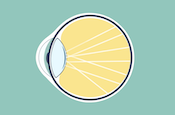
|
| Anterior eye | |
This comprehensive online resource presents various anterior eye disorders and takes practitioners through the presentation, examination, diagnosis and management of those external eye conditions. The course has been developed for both community optometrists and IP practitioners. | 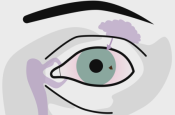 |
Recorded webinars
| Retinal and choroidal lesions in daily practice | |
This lecture by consultant ophthalmic surgeon, Professor Heinrich Heimann, aims to increase clinical skills in differentiating between benign and suspicious fundus lesions that require monitoring or referral. It focuses on the more common causes and includes imaging, referral and monitoring strategies. | 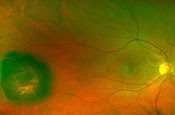 |
Sound Optometry Podcast
| Flashes and floaters | |
In this episode of Sound Optometry, Michelle Hanratty is joined by Stephen Lash, Consultant Vitreo-Retinal Surgeon, and Roshni Kanabar, Clinical and Regulatory Advisor for the Association of Optometrists (AOP), to discuss how to manage suspected retinal detachment. |
| Medical retina | |
Medical retina is a fascinating topic and, in this episode, the focus is on age-related macular degeneration (AMD). Michelle Hanratty explores the referral, investigation and management of wet AMD, as well as gene therapy, with consultant ophthalmologist Rupal Morjaria. |
| Suspicious discs | |
In this episode, we hear about a clinical scenario of bilateral optic disc swelling. Michelle discusses the key features of papilloedema, its presentation and causes with neuro-ophthalmologist Dr Denize Atan before looking at the differential diagnoses and unilateral causes of optic disc swelling. |
Library
| Acute presentation | |
This course guides optometrists on managing patients presenting with acute symptoms. It includes areas such as sudden loss of vision, the painful red eye and neurological problems. It covers presentation, what to look for during examination, differential diagnosis, referral steps, further clinical management and red flag symptoms. | 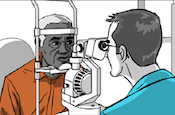 |
| Adapting the Routine - Community practice | |
Experts look at how to adapt the routine eye check when examining elderly patients including communication, ocular examination and refraction. It provides guidance on techniques to use and how best to modify an examination to ensure that elderly patients get the highest level of care and their individual needs are addressed. | 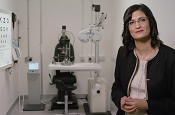 |
| Binocular vision | |
Binocular Vision provides a step by step practical guide to the various techniques required in practice to assess the binocular status of patients, both young and old. The programme guides optometrists through specific case studies to consider the appropriate management options for a broad range of anomalies. | 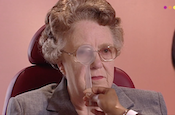 |
| Contact Lenses - Core skills | |
The first module of the contact lenses series covers the core skills required to examine patients to assess their suitability for contact lenses, to fit a range of RGP and soft lenses and to conduct successful patient aftercare. This course is particularly suitable for those new or returning to contact lens fitting. |  |
| Contact Lenses - Fitting astigmatic patients | |
This course is split into two parts and covers the skills required to examine and fit astigmatic patients with soft and RGP lenses. It covers fitting tips and the management of aftercare complications. This course is particularly useful for optometrists returning to contact lens fitting. |  |
| Developing clinical skills | |
This programme looks at the application of three clinical investigative techniques and shows how to undertake and interpret van Hericks technique, the use of slit lamp and indirect lenses for assessment of the fundus and how to measure IOP with a contact tonometer. | 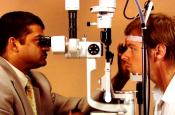 |
| Flashes and floaters | |
The symptoms of floaters and flashing lights are some of the most common met in optometric practice.This programme looks at these symptoms and provides guidance for optometrists on assessment and appropriate management of patients, including referral decisions. | 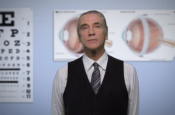 |
| Modern Imaging SLO & OCT | |
The last two of four programmes discussing modern imaging in practice, this course looks how to achieve the best images with scanning laser ophthalmoscopy (SLO) and optical coherence tomography (OCT) systems and how to best interpret the data captured. Legal issues are also discussed. |  |